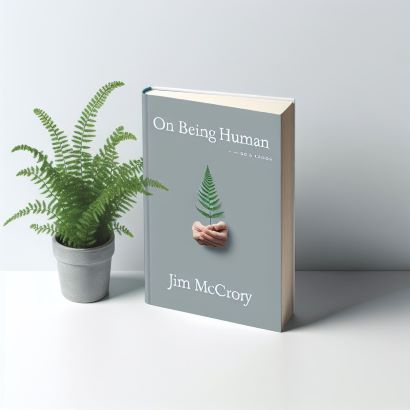
What Leaves When Life Leaves
Life. It is a strange old mystery.
I do not mean the plans we make, the joys we chase, or even the suffering we endure. I mean life itself. What is it?
A man stands beside his loved one in a hospital bed. The machines that once kept her alive have been switched off. She lies there still. Her face unchanged. Her identity unmistakable. This is the bride he once walked down the aisle with.
Yet something essential is missing. The force of life has gone. I know thar feeling as I sat with my daughter in a hospital room as the nurse gave us private time with our loved one who just passed away.Biochemist James Tour Speaking in Socrates in the City explains that while science can describe chemical processes in remarkable detail, it remains unable to explain how life itself arises (Tour, n.d.). Tour illustrates this uncertainty by asking us to imagine standing in a laboratory. Your hands are steady. Your eyes are trained on a cluster of living cells. Everything is controlled. Sterile. Precise. You know the protocols. You know the equipment.
Then one cell dies.
What exactly has gone, we may ask?
Its structure remains. The membrane is intact. The chemistry is still there. You have microscopes, reagents, machines worth millions. Surely something can be done. Surely life can be restarted.
But it cannot.
Once life leaves, it does not come back. Not by force. Not by knowledge. Not by will. It is gone.
That quiet, irreversible collapse exposes a truth we would rather not face. For all our scientific triumphs, we still do not know what life is. With all the king’s horses and all the king’s men, we still cannot put that cell together again.
That silence should trouble us.
Long before laboratories and microscopes, Jesus spoke words that cut just as deeply:
“Are not two sparrows sold for a penny?
Yet not one of them will fall to the ground apart from the will of your Father.”
—Matthew 10:29 (BSB)
Picture a sparrow slipping from a branch. One moment animated, the next unmoving. It looks the same. Feathers intact. Weight unchanged. And yet everything has changed.
Life has gone somewhere.
This is not merely biology. It is metaphysics intruding into the everyday. The body remains, but the animating presence has withdrawn. What we are witnessing is absence—and absence speaks.
Jesus sharpens the tension even further:
“Do not be afraid of those who kill the body but cannot kill the soul.”
—Matthew 10:28 (BSB)
If this is true, then death does not finish us. It interrupts us.
There is something within a human being that cannot be dismantled by knives, disease, time, or entropy. Something untouchable. Not chemistry. Not neurons alone. Something that uses the body but is not confined to it.
We are not merely assembled matter. We are life-breathed dust.
This thought pressed itself on me while visiting the Titanic Museum in Belfast last year. Names, each name marked a person who loved, feared, hoped, failed, laughed. Just a name. Just silence. Just bodies that once lay there in an open grave, but ate up by the eco system.
Were their lives futile?
The answer depends on where they placed their hope. If existence ends at the grave, then meaning dissolves with the flesh. Memory fades. Identity erodes. Eventually, even the stones themselves crumble.
But if life rests in God’s hands, then death is not an eraser. It is a pause.
That image unsettles me, in the best way. It refuses despair. It insists that death does not hold the final key.
I accept that consciousness is bound to the brain. Damage the brain, and the mind falters. But I do not believe consciousness is identical to the brain. I believe it is hosted there. Carried. Expressed.
When renewal comes, I believe God will restore more than function. He will restore identity. Memory. Continuity. I will not wake as a stranger inhabiting a replacement shell. I will be myself—fully known, fully restored.
Scripture dares to say this plainly:
“When a man dies, will he live again?
All the days of my hard service I will wait,
until my renewal comes.”
—Job 14:14 (BSB)
That question lingers—unanswered by science and unavoidable in silence.
If life cannot be manufactured, if death cannot be reversed by human hands, then perhaps life was never ours to control in the first place.
And that possibility should unsettle us.
Because it means meaning is not something we invent.
It is something we answer to.
Reference
Tour, J. (n.d.) How Did Life Come Into Being? [online interview]. Socrates in the City. Available at: https://socratesinthecity.com/watch/dr-james-tour-how-did-life-come-into-being/ (Accessed: 9 February 2026).
Image by Copilot






